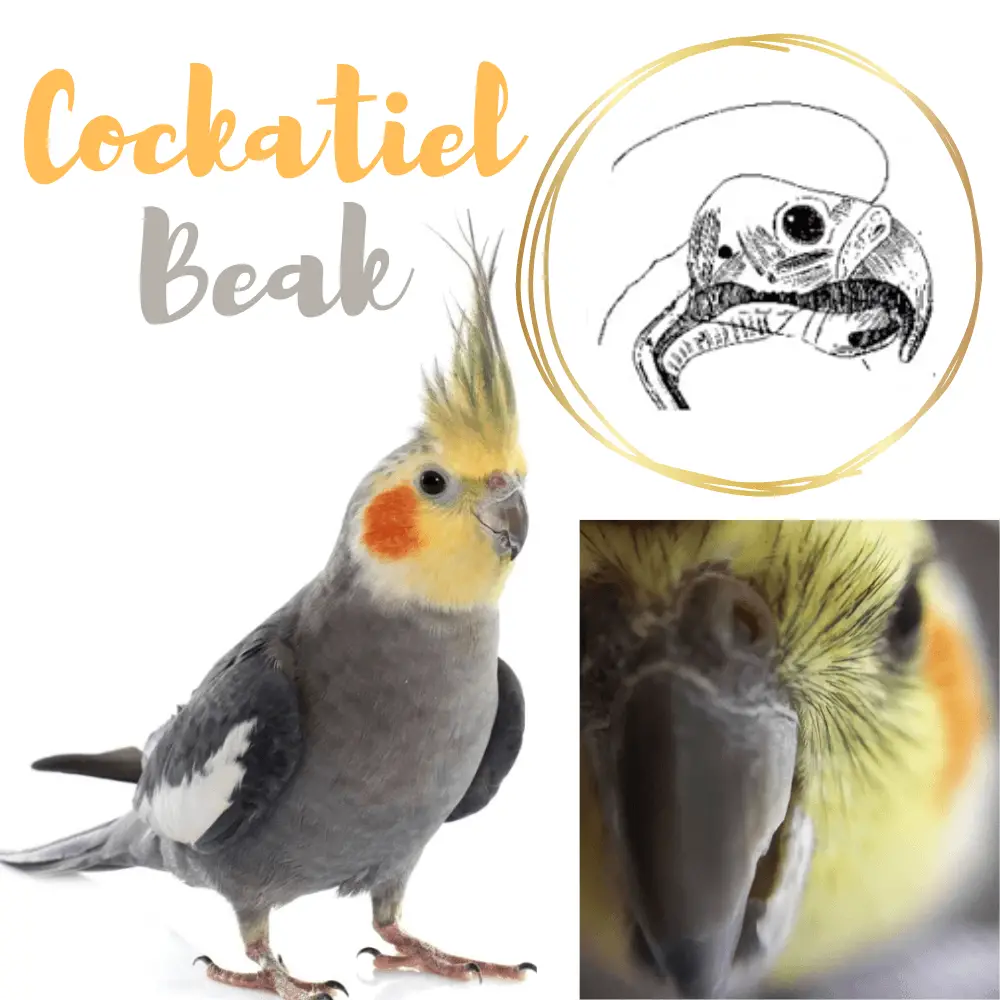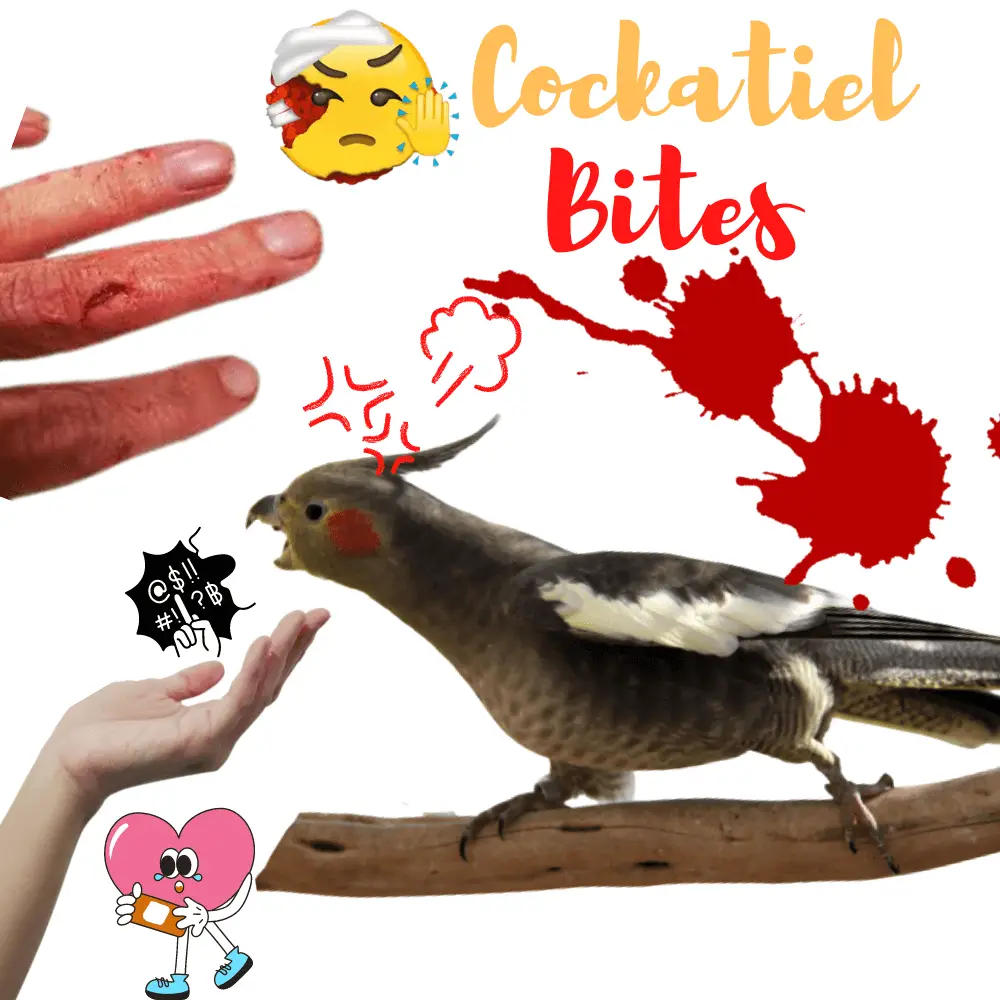Take security measures
Find out why it bites. Cockatiels tend to communicate with their owner by biting them. If you can understand what your bird is trying to tell you, it will probably stop. For example, he may bite you to signal that you are bothering him because he is trying to sleep, that he wants to do his business, or to warn you of a potential danger because he wants to protect you.
- In addition, he can bite you if he is surprised or afraid, to defend himself. He can also bite if he associates your hands with something negative, for example, if you use them to repel him or if he doesn’t like what you’re doing.
- Once you understand what he is trying to tell you by biting you, you can anticipate his needs and not get bitten in the future.
Cockatiel bites

React to a bite
Avoid getting angry after being bitten. You should also not react loudly. Even if there is reason to be surprised or frightened at the thought of being bitten, you will only scare him if you yell at him or hit him, especially if he is sensitive. As a result, he will tend to bite again out of fear.
- If he has been neglected or abused in his old home, in a pet store or in an animal shelter, he may tend to bite you.
Say “no” in a stern tone. This can help teach them to stop biting or at least prevent them from biting you when you order them to. However, you need to be consistent and say “no” to him every time he bites or tries. Just like other animals, cockatiels are not going to learn voice commands if they are not used consistently.
- Be patient with him. His behavior won’t change overnight and it may be weeks before he stops biting if he was used to doing it with you or with his former owner.
Make him lose his balance a little. After saying “no”, tilt his perch to unbalance it a little. This will lead him to first seek to find his balance, which will make him forget what he wanted to do, that is to say, to bite you. In this way, he will learn to associate the word “no” with being unbalanced and will stop biting as soon as you have given him the order.
- Unbalancing it a little will do him no harm and it is neither mean nor abusive. It’s just a gentle way to show him that he has no right to bite.
- If he was on your shoulder or arm while he tried to bite you, try leaning back a bit to make him lose his balance.
Change interactions
Leave him alone if he bites you. If you were playing with him or stroked his head or body, he may bite you to let you know he’s had enough. That’s not to say he’s angry with you or doesn’t want your attention in the future, but would just like you to stop touching him right now.
- Pet birds have few other ways to communicate with their owners, and as a result, the bite acts as the default communication signal.
- Look for signs that he is about to bite. He will tend to watch what he is about to bite open his beak, spread his legs or grab his perch or rush into the pile.
Let him rest if he starts biting you. Skullcaps and other types of parrots need a lot of sleep and can be grumpy if they don’t get enough rest. If he has been awake for hours and begins to bite, be sure to put him back in his cage, leave the room and let him rest or sleep if he wishes.
- Avoid putting your hand in his cage and waking him up when he sleeps. Moreover, all pet birds must be left alone when they rest and a poorly awakened bird can get angry and bite.
Don’t reward him for his bad behavior. If you caress him and give him attention every time he has bitten you, he will quickly learn that biting leads to positive attention. Instead of rewarding him, ignore his bad behavior. Put him back in his cage and leave when he bites.
-
- In this way, he will quickly learn that his bite is not going to lead to positive attention.
Cockatiel bites

Adapt your environment
Cut the feathers of its wings. Cockatiels and especially males can be aggressive if the feathers at the wings are well-developed. If you find that your male bird is going through sporadic phases where it bites or gives more beaks, try cutting off the feathers that are at the level of the tips of the wings.
- If you’ve never cut them before or aren’t comfortable doing it yourself, take it to a vet who can help.
- Cutting the feathers of its wings will also prevent it from escaping.
Put it in a larger cage. Like all species of parrots, the cockatiel needs enough space to be comfortable and not feel cramped. That is, the cage in which you plan to put it should be large enough so that it can be comfortable there. If the cage he is currently in is too small, he will become agitated and will most likely bite you.
- If this is your first time owning a cockatiel, plan to buy a cage that is between medium and large in size. The cockatiel has impressive crests and large tails. So they need more space than you think. The cage must be at least 50 cm wide, 50 cm is deep and 60 cm high.
Put toys or perches in the cage. Your bird will enjoy the extra entertainment that these items will provide in its cage and will be less aggressive. Perches come in various sizes, textures, and shapes and can be made from synthetic or natural materials. However, be aware that cockatiels have a preference for softwood perches, so look for this variety in a pet store near you.
- To encourage him to play longer in his cage, you can give him items you find in your home, including toilet paper rolls, buttons, large Lego blocks, and shiny objects such as metal bells.
- In case he tries to eat the plastic perches, be sure to remove them immediately and replace them with stainless steel perches.
- For example, if the temperature in your home is typically 24°C, lower the temperature of the room where you keep them to about 18°C.
- However, do not lower him too much, otherwise, he could get sick.
Cockatiel bites Advice
- Encouraging good behavior will help him not to bite anymore. If he behaves well, don’t scratch, kick or bite you, say “good bird” and stroke him or give him a treat.
- Be sure to be very patient with him. Also, determine if he bites because he is injured. If he bites every time you touch one of his wings, take him to a veterinarian for an examination.
Tips for Training Your Cockatiel to Stop Biting When Stepping Up
SOURCES:The Cockatiel Corner





















